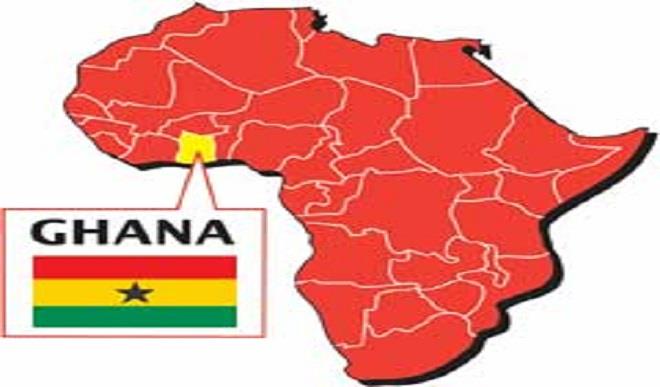Things I learnt in Ghana
Three things are popular once you are in Ghana. Africa, Jesus, and dead people. An epiphany hit me as soon as I had spent the third day in Ghana. Perhaps it is safe to blame all those African stereotypes on Ghana, a country loved by non-African foreigners. There is Africa everywhere you go, in the […]


Three things are popular once you are in Ghana. Africa, Jesus, and dead people.
An epiphany hit me as soon as I had spent the third day in Ghana. Perhaps it is safe to blame all those African stereotypes on Ghana, a country loved by non-African foreigners. There is Africa everywhere you go, in the holiday resorts, in the business names, in the signs, on the streets. I have never been anywhere where Africa is retailed to foreigners like it is here. Even I felt like I had finally arrived that huge country everyone talks about: Africa.
For 50 US dollars you can stay in One Africa. Or a fraction of the cost in One Love Africa. And in One Africa you get everything, from a view of the ocean to images and histories of black people who were or at least according to management should be important to Africa.
In One Love Africa, there are reminders of Bob Marley as ably marketed by it’s dreadlocked owner Judah, who never fails to tell his foreign guests that his wife is an oboni, a white woman.
Africa is everywhere on the walls, painted in the colours of the Ghanaian flag. And somewhere in the middle is the black star. I blame Nigeria. Somewhere in our history, while we were busy trying to conquer the world, we lost everything: our reputation abroad, our reputation at home, and a franchise of Africa. Ghana cheated us out of Africa and now all a white person needs to do to become African is go to Ghana, get dreadlocks and take drumming lessons from someone near a beach. This could have been us. But, like our beloved president rightly pointed out, we were busy being criminals in Western capitals while Ghanaians were putting Africa in sachets the colour of their flag.
Jesus is big in Ghana. And they do not do it by halves. Everywhere he is in full colour, white sad-faced and looking up to heaven and blond. And then there are the people who retail Jesus on the large billboards, smiling, looking into the eyes and souls of Ghanaians, beckoning them to come and taste the glory and power of Jesus. None of the billboards offer and return policy on donations in the event that the glory and power does not manifest in one’s life. I think a refund policy is only fair, but then I have not spent enough time in Ghana to know if these agents of Jesus deliver on their promises. I like Jesus in Ghana. He does not mind sharing the space with Muslims whether as funded by the Lebanese or the big ones funded by Turkey.
Occasionally you do see a Nigerian agent of Jesus expanding into Ghana sometimes dripping with hair products, offering the same power and glory with a Nigerian flavour. I am not sure how Ghanaiains react to this, but if I were a Ghanaian I would patronise made in Ghana products, especially if Nigerians are involved.
As you leave Accra in the direction of places like Winneba or Cape Coast for example, there are old dead people in full colour by the side of the road. If the signs are anything to go by, it is mostly a celebration of life and I couldn’t help thinking how long a dead person would stay on the side of the road and whether relatives change the signs when they fade due to being out in the elements.
As a Nigerian, you learn to slow down in Ghana. You learn that, unlike in any of the Nigerian cities of capitals, traffic lights and zebra crossings are not fancy objects to decorate the road but have actual use. You learn that somewhere on the continent of Africa, not too far away, it is not illegal to kill pedestrians who step onto zebra crossings; it is not illegal to wait for other humans. You also learn not to be shocked when a Ghanaian shows little interest in doing the business they left their house to do, like a taxi driver telling you, without waiting to bargain, to try another taxi who might be cheaper or a tailor you need to quickly fix a broken button telling you they are too busy eating a snack to help and directing you to another tailor on the next street.
You learn also that it is possible to love one’s country enough to go out on independence day and be happy even if you are not forced to do it as a civil servant or as a student in a school taking part in an independence day parade.
I am thinking of going into this Africa business when I return home. I will rent a place in Abuja, give it a thatched roof, paint everything in green and white, draw huge maps of Africa all over, and employ a few reggae boys with dreadlocks to offer drumming and African dance classes to white women (I am still not sure if I should add a caveat banning my drummer boys from falling in love with my clients). Someone has to claim some of this Africa for Nigeria.
